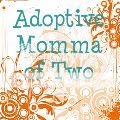Posted on January 18, 2008
Filed Under Research Abstracts |
Studies show that approximately fifty-six to eighty-five percent of children placed in foster care have at least one sibling also in foster care.� These siblings are frequently separated due to the difficulty of finding foster care families willing to take multiple children.� Some studies show that up to seventy-five percent of siblings are separated when they are placed in the foster care system.� For most of these children, the separation from a brother or sister is devastating.� Children in foster care have reported that their relationship with their siblings is important and that separation from them is the most painful aspect of their foster care experience.� Such separation from siblings is perhaps the end of the only significant bond they have ever known.�
What options do children have when they are separated from their siblings due to foster care?� Does the Constitution afford rights to siblings when they are separated?� Does the state have a responsibility to protect sibling visitation rights?� Would a federal statute better establish uniform rights concerning sibling visitation?� These questions must be addressed if we want siblings to maintain relationships with each other after being placed in foster care.
Many professionals in the area of child development have noted that aside from the parent-child relationship, the sibling bond is the most vital relationship in a child’s development.� These experts have stated that the sibling relationship allows a child to form healthy social skills, develop proper personality traits and understand suitable gender roles.� Courts have also echoed the significance of the sibling relationship:� “A sibling relationship can be an independent emotionally supportive factor for children in ways quite distinctive from other relationships, and there are benefits and experiences that a child reaps from a relationship with his or her brother(s) or sister(s) which truly cannot be derived from any other.� Those of us who have been fortunate enough to experience a sibling relationship are aware of these basic human truths.” L. v. G., 497 A.2d 215, 221 (Ch. Div. 1985).� Since thousands of siblings are separated into different foster homes each year, it is imperative that courts and agencies understand the importance of the sibling relationship to a child’s development and emotional well-being.
The U.S. Supreme Court has never ruled that siblings have an unwavering constitutional right to visit one another when separated because of foster care.� In 1999, the Court was given the opportunity to settle this question in Hugo P. v. George P., but they rejected to hear the case. Hugo P. v. George P., 526 U.S. 1034 (1999).� In that case, Hugo, a minor child in foster care, had lived with his sister, Gloria, and his sister’s adopted mother, Enid, for two years.� Enid was Hugo’s foster mother, and when he was placed for adoption, she asked for the opportunity to adopt him so that he could maintain a relationship with his sister.� However, an aunt who lived in another state and had no involvement in Hugo’s life stepped forward and declared her intention to adopt him.� Rejecting Enid’s arguments that Hugo had already developed an emotional bond with his sister and that by separating them he would be harmed, the Supreme Court of Massachusetts ordered that Hugo be placed with the aunt instead of with Enid.� Since the U.S. Supreme Court declined to hear the appeal, it remains unclear whether siblings have a constitutional right to maintain their relationship when separated by foster care.
There is also considerable variation among individual states as to the rights of siblings when placed in foster care.� Although the tendency has been to recognize the significance of sibling relationships, court opinions have not been consistent in their holdings.� State sibling visitation statutes can vary widely from state-to-state.� For instance, some states spell out the time of sibling visits—monthly, bi-weekly or weekly—while others simply state that visits should be common-place.
With the inconsistency found in state statutes and with children’s lives at stake, it is time to enact a specific federal statute that would establish uniform sibling visitation rights.� After analyzing each individual state with a sibling visitation statute, here are the main suggestions for consideration:
·� � � � � � � Expand the classification of sibling visitation beyond the minimum contact requirements.
·� � � � � � � Improve the training of foster care parents concerning the significance of sibling visitation.�
·� � � � � � � Incorporate children in the process of arranging and planning visitation with siblings.
·� � � � � � � Improve training for administrators and caseworkers on sibling visitation rights.
·� � � � � � � Assist with sibling visitation for those children who are not in foster care.
·� � � � � � � Increase the opportunities for younger siblings to visit older siblings.
·� � � � � � � Facilitate visitation with step-siblings, half-siblings and adopted siblings.
There are many more factors that must be considered; however, the ones listed above should be the foundation upon which a federal statute is enacted.� In addition, one thing should be clear:� siblings in foster care do have a fundamental right to visitation and a uniform law would protect such a right.� � � � �
Saturday, June 5, 2010
Subscribe to:
Post Comments (Atom)


















No comments:
Post a Comment